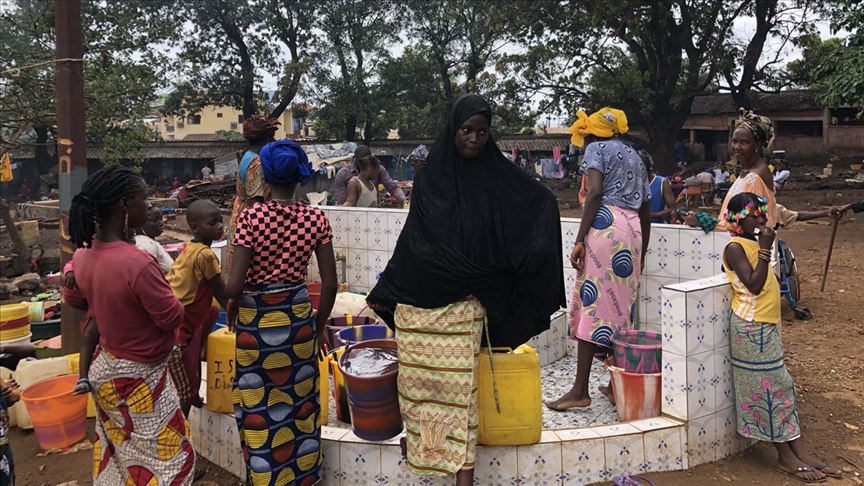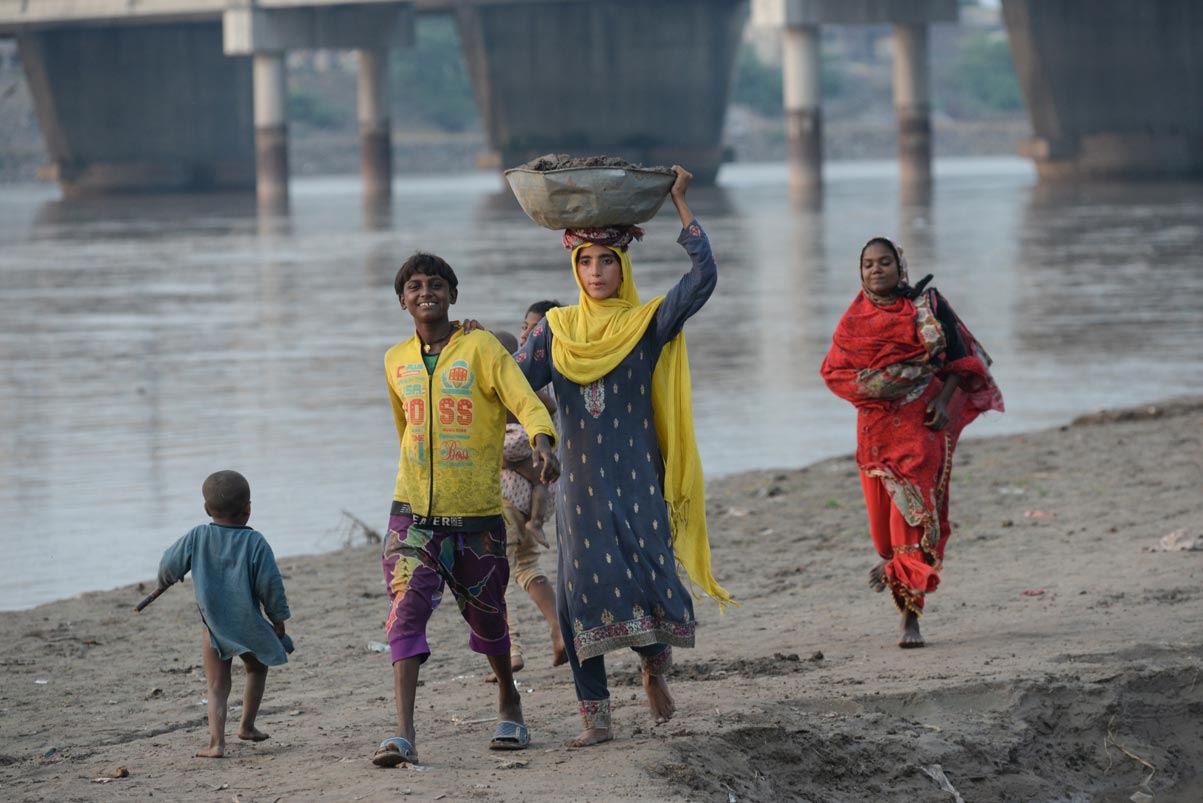Water is vital for survival and growth, and plays an important role in the lives of people in Guinea. The country’s population suffers from many challenges regarding water, such as its scarcity and pollution, but there are proposed solutions to improve the current situation and ensure the availability of clean water for all. In this article here are the challenges and proposed solutions to water problems in Guinea.
The importance of water in Guinea
Water is one of the most important natural resources in Guinea, as the population relies heavily on water to meet their basic needs such as drinking, agriculture and industry. Water plays a vital role in improving the quality of life and advancing the development of the country. Guinea’s rich and sustainable water resources are an important source for Sustainable Development and the overall well-being of society.
Water problems in Guinea
Guinea is facing several challenges in the water sector that negatively affect the daily life of the population. Among these challenges, water scarcity, lack of sanitation and water pollution are considered the most widespread. These evidence-based details were used to construct this completed sentence.
The problem of water scarcity
The problem of water scarcity is one of the main challenges faced by Guinea. Residents in several regions are experiencing an accelerating shortage of water supply, which significantly affects their daily lives and their ability to access safe and clean water for personal use and agriculture. This problem is caused by difficult conditions, as residents are forced to walk long distances to get water and often resort to using unsafe and unhygienic sources to meet their water needs. Water scarcity in Guinea is caused by many factors, including climatic changes, deterioration of the quality of Water Resources and deterioration of water supply infrastructure.

Water problems in Guinea
The impact of water scarcity on the daily life of the population
The scarcity of water in Guinea is pushing the country’s population to face great challenges in their daily lives. With poor water availability, residents find it difficult to obtain clean and fresh water for personal and domestic use. This affects their ability to bathe, wash and cook, which consequently affects their health and personal hygiene. In addition, some have to travel long distances to get to water sources, which takes a lot of time and painstaking effort. These challenges disrupt their daily lives and significantly affect their well-being.
Causes of water problems in Guinea
Water scarcity in Guinea is attributed to several causes, including climate changes and frequent droughts, lack of planning and effective management of water resources, poor water infrastructure, as well as high population growth rates and increasing demand for water. These causes lead to the deterioration of water services in Guinea and make it difficult for the population to access safe and clean water sources.
The problem of Health and sanitation
Guinea has a major health and sanitation problem. Lack of sanitation leads to the spread of infectious diseases and bacteria causing diarrhea. The impact of such pollution affects the health of the population and may cause serious epidemics. There is an urgent need to improve sanitation systems and proper disposal of waste, in addition to enhancing awareness campaigns to build community awareness of the importance of personal hygiene in maintaining good health.

Water problems in Guinea
The impact of lack of sanitation on public health
The lack of sanitation in Guinea has negative effects on the health of the population. The lack of an adequate sewage system leads to water pollution and the spread of infectious diseases. Cases of poisoning, diarrhea and intestinal infections are increasing due to the use of contaminated water, which impairs the quality of life and affects the general health of the population in Guinea.
Causes of the spread of water-related diseases in Guinea
The spread of water-related diseases in Guinea is a major problem affecting the health of the population. The reasons for this spread are due to the lack of sanitation and the unavailability of clean water, which puts the population at risk of contracting diseases transmitted by contaminated water. Among such diseases are: cholera, worms, diarrhea and others. These causes must be identified and resolved to limit the spread of these diseases, which pose a serious threat to the health of the population in Guinea.
The problem of water pollution
Guinea has a problem with water pollution, as this pollution affects the environment and health. Improper disposal of agricultural and industrial waste and pesticides has caused water pollution, endangering the health of the population and harming aquatic ecosystems.
The impact of water pollution on the environment and health
Water pollution is a serious environmental and health problem in Guinea. The leakage of pollutants into the Water leads to a deterioration in its quality and a negative impact on marine life and ecosystems. In addition, individuals who abuse this water have serious health risks due to the fact that contaminated water contains chemicals and organic pollutants that may cause respiratory and Digestive Diseases.

Water problems in Guinea
Causes of water pollution in Guinea
Guinea has a problem with the pollution of its waters, and the causes of pollution are due to several factors. Such factors include unsafe disposal of industrial and agricultural waste, leakage of chemicals from industrial facilities, lack of planning for the management of city waste. In addition, the sanitation sector in Guinea is experiencing technical and financing challenges, which leads to the leakage of waste to water sources.
Solutions to improve the water situation in Guinea
To improve the water situation in Guinea, there is an urgent need to modernize and develop methods of collecting and storing water. Water purification technologies should also be applied to reduce pollution.
Improving water collection and storage methods
Improving water collection and storage methods are one of the main solutions to improve the water situation in Guinea. This can be achieved by building a water well or digging reservoirs for storing rainwater. Awareness of the importance of collecting and storing water to ensure its availability in dry seasons should also be promoted.
Application of water purification technologies
The application of water purification technologies is one of the important solutions to improve the water situation in Guinea. This includes the use of innovative treatments to remove impurities and sediments from water sources, which contributes to the provision of clean and healthy water for Human Use and agriculture. In addition, the government and relevant authorities in Guinea should promote technical achievement and provide continuous training for water purification workers in order to develop and apply modern and effective technologies.
Solutions to improve health and sanitation
Guinea is facing significant challenges in terms of Health and sanitation, so there is an urgent need to take effective solutions. Sanitation and waste disposal systems must be improved to reduce the spread of diseases. Awareness campaigns should also be activated to make the population aware of the importance of personal hygiene and taking care of the environment around them. AHAD, an association working in Africa, seeks to solve all water-related problems.
Improvement of sewage systems and waste disposal
Improving sanitation and waste disposal systems is an important solution to the health and sanitation problem in Guinea. This includes the development of efficient sewage networks and the expansion of wastewater treatment systems. Moreover, the population should be educated about the importance of disposing of excrement in healthy and safe ways to ensure their safety and the safety of society in general.
Solutions to control water pollution
Solutions to control water pollution are essential to maintain water quality in Guinea. Among these solutions are the implementation of strict laws to maintain water quality, the promotion of organic agriculture and the mitigation of the use of pesticides. Everyone must be responsible for maintaining the cleanliness and health of water sources to ensure the safety of the future of water in Guinea.
Implementing strict laws to maintain water quality
The implementation of strict laws to maintain water quality is one of the effective solutions to control water pollution in Guinea. These laws should include strict regulation of the disposal of industrial and agricultural waste, setting strict standards for the quality of water that is allowed to be used, and applying deterrent penalties to violators. With these measures, the water source can be ensured clean and safe for Human Use and the environment.
Promoting organic farming and reducing the use of pesticides
The promotion of organic agriculture plays an important role in solving the problem of water pollution in Guinea. Instead of using pesticides that remove pests and pollute water resources, farmers are encouraged to use organic practices that use natural methods to maintain soil and Water Integrity. This contributes to the overall preservation of water quality and environmental health.
Related articles:



